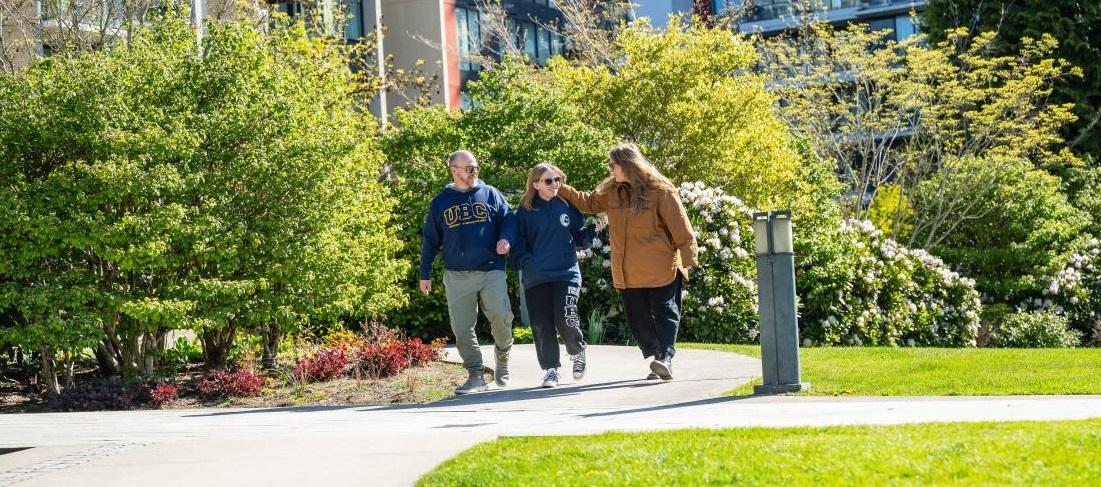Updated: June 12, 2024
Update
✅ Status: Approved
The UBC Board of Governors has approved the Neighborhood Climate Action Plan (NCAP), which sets a pathway to a net-zero and climate resilient community for the residential neighbourhoods on UBC’s Vancouver campus. Thank you to all who participated in the Neighbourhood Climate Action Plan (NCAP) engagement process. Stay tuned to this space for further updates on NCAP.
About the Neighbourhood Climate Action Plan (NCAP)
NCAP sets a pathway to a net-zero and climate resilient community for the residential neighbourhoods on UBC’s Vancouver campus. With the increased frequency of intense climate events, there is a renewed and urgent focus on climate action, as outlined in UBC’s Climate Emergency Response. In 2021, UBC launched Climate Action Plan 2030, which charts a course to reach net zero emissions for the academic campus. NCAP will do the same for residential neighbourhoods as well as plan for adaptation to our already changing climate.
Visit the NCAP website to read the final plan.
October 2023 - November 2023
Emerging Directions
Public engagement ran from October 17, 2023 to November 3, 2023 to gather feedback on the plan’s Emerging Directions. The feedback was used to inform the draft goals, targets, and actions needed to achieve greenhouse gas (GHG) emissions reductions and climate resiliency in UBC’s neighbourhoods.
March 2024
Draft NCAP
The draft NCAP was developed after the first phase of engagement and reflected feedback from the community as well as inputs from workshops with Technical Working Groups. The draft NCAP was then presented to the community for feedback in the second phase of engagement from March 5 to March 22, 2024.
What We Heard
Community feedback has been essential in shaping NCAP, which is the culmination of two phases of public engagement and collaboration among staff at UBC, the UNA and UBC Properties Trust, academic researchers and partnerships with government, utilities, industry and non-governmental organizations. To ensure NCAP is both ambitious and achievable, engaging with the community was essential to understanding the lived experiences of diverse community members and to identify priorities, gaps, and what support the community needs to take climate action. Click on the drop down below to learn more about what we heard during engagement.
Engagement Approach
The NCAP engagement process was anchored by Campus + Community Planning's Engagement Charter and has built upon the successes of the engagement process for UBC’s Campus Vision 2050. This meant emphasizing targeted engagement with community groups and providing diverse ways to engage. Transparency, inclusivity, equity, and flexibility were core principles for the engagement process.
Achieving NCAP's climate goals requires collaboration and coordination with the UNA, UBC Properties Trust and neighbourhood residents.
What Engagement Looked Like
Image
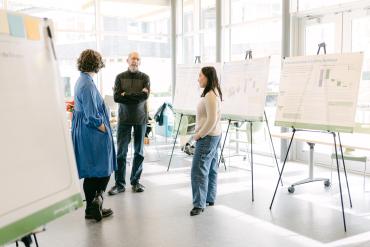
| Image
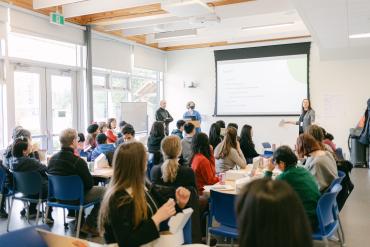
|
Image
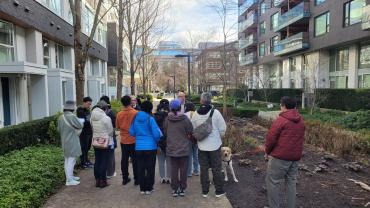
| Image
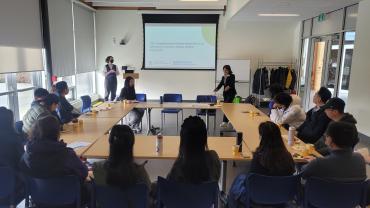
|
Contact Us
|
